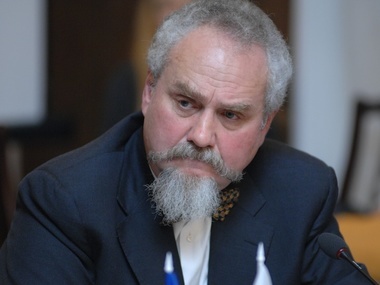Professor Andrey Zubov, who paid for the open criticism of the Russian aggression in Ukraine with his position in MGIMO (Moscow State Institute of International Relations), believes that the UN can influence Russia as a moral factor, demonstrating unanimous international disapproval of Vladimir Putin’s policy. Zubov said this in his comment for the GORDON.
"The UN cannot stop the aggression directly. If the Russian army invades Ukraine and attacks Kiev or Kherson, it is clear what the UN can do. It will declare Russia an aggressor, Russia will veto, and that will be it. However, the UN has a great moral impact, and it is with this purpose that the USA and Australia convened the last Security Council meeting," thinks the professor.
"Open public condemnation, expression of the positions of many countries – not only NATO states but also third-world countries – all this is very important. It creates a certain climate. And the aggressor will always take it into account as it is not an independent party, it is bound with sanctions, with anticipation of new sanctions and with the threat of isolation. It will take into account to what extent the world is prepared to accept its aggression," Zubov noted.
Even most of the third-world countries disapprove of the Russian aggression
According to the scientist, the difference between Hitler’s aggression in the late 1930s and Putin’s intrusion into Ukraine lies in the fact that the Russian president does not have consent and support of the European countries.
"When Hitler started his aggression against Czechoslovakia, he enlisted the support of many European countries in Munich, he would not have dared it without this support. Since there is no such consent now, on the contrary, there is agreement that the actions of Russia are inadmissible, I think that it will be very important for the Kremlin leaders to choose their way more carefully and to avoid direct aggression. It seems to me so, however, the Kremlin’s policy is unpredictable now," Andrey Zubov noted.
"Putin will get no support at the meeting in Brisbane in Australia, and in the UN in New York. Even most of the third-world countries disapprove of this aggression. It is very important. Yes, he is trying, but he fails. He would like to split the European Union, the UN and the Security Council, but, as you can see, he fails. It proves that the world community is rather sound so far," the professor believes.
When the UNO was created it was inconceivable that the states of the anti-Hitler coalition who have just conquered the aggressor will commit aggression themselves
According to Andrey Zubov, when the UNO was created nobody could think that the countries who have conquered the aggressor will become aggressors themselves, so the permanent members of the Security Council enjoy the right of veto they cannot be deprived.
"At the time when the UNO was created, there were discussions that the right of veto can be abrogated in case one of the permanent members of the Security Council commits aggression. But this decision was not adopted then because it was inconceivable that the states of the anti-Hitler coalition who have just conquered the aggressor will commit aggression themselves. But it became clear very soon: the Berlin crisis in 1948 and other events demonstrated that the USSR was an aggressor. However, the provision concerning the right of veto remained unchanged. I think that a mechanism must be developed when a country that is considered an aggressor by two thirds of UN countries will be deprived the right of veto for the period of aggression," Andrey Zubov considers.


 -9 Kyiv
-9 Kyiv


